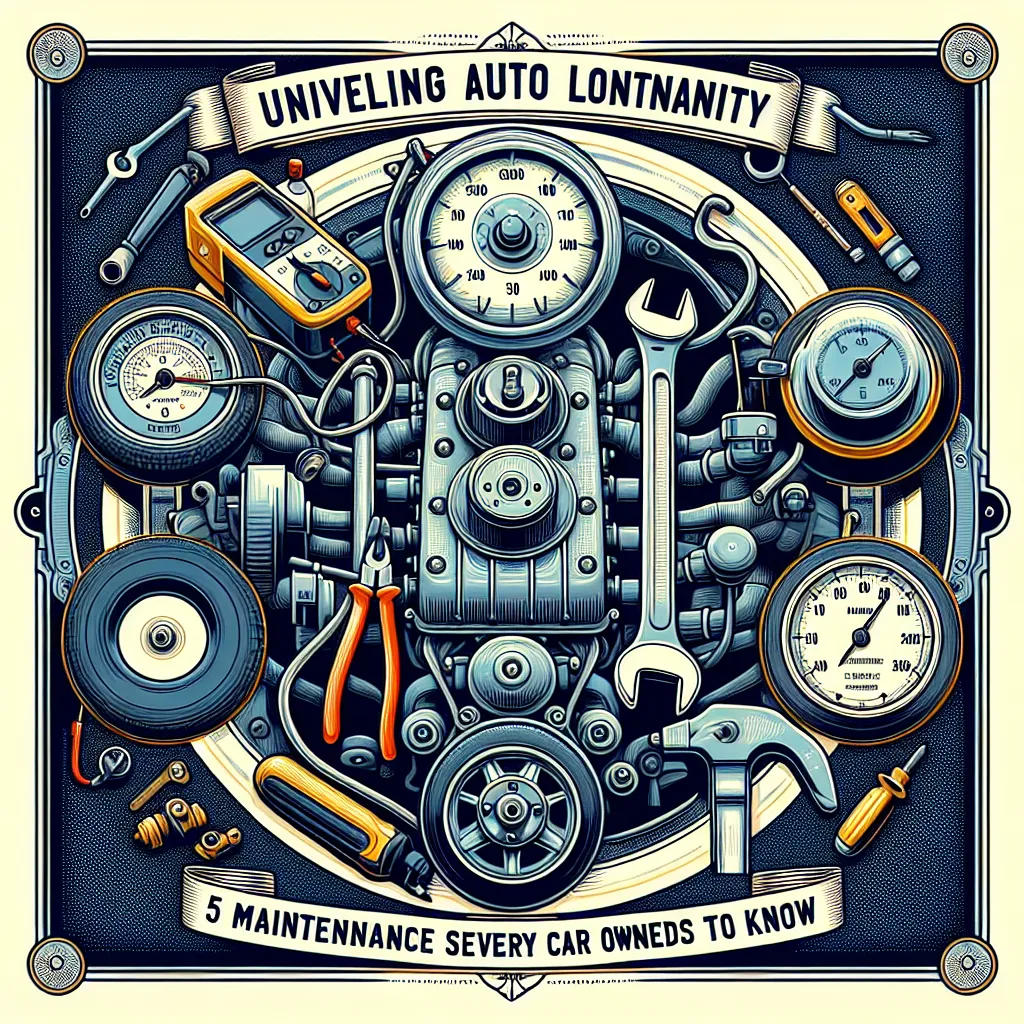The Power of Regular Oil Changes
Oil is the lifeblood of your car. It lubricates the engine and prevents it from overheating. Regular oil changes ensure that your engine continues to function at its peak. Depending on your car's make and model, and the type of oil you use, you should aim to change your oil every 5,000 to 7,500 miles. Don't forget to replace the oil filter as well, as it traps dirt and debris that could potentially damage your engine.
Tire Pressure Matters
Maintaining optimal tire pressure is one of the easiest yet most overlooked aspects of car maintenance. Incorrect tire pressure can lead to uneven tire wear, reduced fuel efficiency, and even tire blowouts. Make it a habit to check your tire pressure at least once a month and before long trips. The recommended tire pressure for your vehicle can typically be found on the driver's door jamb or in the owner's manual.
Keep Your Battery in Check
A dead battery can leave you stranded in the most inconvenient situations. To avoid this, regularly inspect your battery for signs of corrosion and ensure it's securely mounted. Most car batteries last about three to five years, but extreme temperatures can decrease their lifespan. It's also a good idea to know how to jump-start your car in case of a battery failure.
Regularly Inspect Your Brakes
Your brakes are crucial for your safety on the road. Regular brake inspections can help identify problems before they become serious or even dangerous. Pay attention to any changes in your braking, including squeaking or grinding noises, a spongy brake pedal, or a warning light on your dashboard. If you notice any of these, get your brakes checked immediately.
Don't Ignore the Check Engine Light
The check engine light is your car's way of telling you something is wrong. While it might be tempting to ignore it and hope it goes away, doing so can lead to more severe problems down the line. A flashing check engine light indicates a severe issue that needs immediate attention, while a steady light can usually be addressed at your earliest convenience.
Conclusion
Understanding and implementing these basic maintenance secrets can significantly enhance the performance and lifespan of your car. Remember, regular maintenance is an investment that pays off in the long run by preventing expensive repairs and ensuring your safety on the road. Your car is more than just a vehicle; it's an essential part of your daily life. Treat it with the care it deserves.
